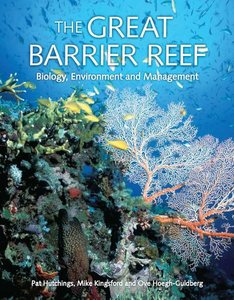Plankton
Kingsford, M.J., Heimann, K., Alexander, C.G., and McKinnon, A.D. (2008) Plankton. In: Hutchings, Pat, Kingsford, Mike, and Hoegh-Guldberg, Ove, (eds.) The Great Barrier Reef: biology, environment and management. CSIRO Publishing, Collingwood, VIC, Australia, pp. 129-144.
|
PDF (Published Version)
Restricted to Repository staff only |
||
![[img]](https://researchonline.jcu.edu.au/7470/2.hassmallThumbnailVersion/7470_Kingsford_et_al_2008_cover.jpg)
|
Image (JPEG) (Book Cover)
- Cover Image
Download (150kB) |
Abstract
Coral reefs of the world are surrounded by pelagic blue waters. Inter-reefal waters of the Great Barrier Reef (GBR) are mostly 10 m to 60 m deep on the continental shelf. Beyond the shelf, waters plunge to 4000 m and more. Despite the clarity of the water column a broad diversity of tiny organisms are found in the pelagic environment. Plankton are the ocean's 'wanderers' (from the Greek 'planktos') and are tiny organisms that drift or have limited powers of locomotion. The plants of the sea (phytoplankton, Fig. 14.1) are autotrophic and generate energy, in the form of sugars, by photosynthesis. All other planktonic organisms (bacteria, zooplankton etc., Fig. 14.2) are heterotrophs. Some plankton are 'mesotrophic' that is, both autotrophic and heterotrophic (e.g. protists, derived from the Greek 'first of all'). Phytoplankton are the basis of pelagic and benthic food chains that are now known to be complex, and involve many trophic transformations within microbial food webs. Plankton provide important links with reefal and inter-reefal environments as a source of food to suspension feeders (e.g. sponges, clams and corals), fishes and ultimately detrital feeders associated with the substratum (e.g. sea cucumbers).
| Item ID: | 7470 |
|---|---|
| Item Type: | Book Chapter (Research - B1) |
| ISBN: | 978-0-643-09557-1 |
| Keywords: | Great Barrier Reef; food chain; upwelling; algae; copepods |
| Date Deposited: | 23 Dec 2009 05:31 |
| FoR Codes: | 05 ENVIRONMENTAL SCIENCES > 0502 Environmental Science and Management > 050202 Conservation and Biodiversity @ 100% |
| SEO Codes: | 96 ENVIRONMENT > 9605 Ecosystem Assessment and Management > 960507 Ecosystem Assessment and Management of Marine Environments @ 100% |
| Downloads: |
Total: 284 Last 12 Months: 5 |
| More Statistics |



